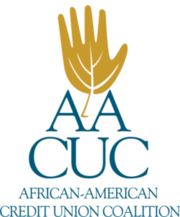Growing up in a working-class household, I never witnessed any financial stress or lacked for any necessities. My mom, a single parent to an only child, masterfully stretched every dollar, securing a life of opportunity for me through resourcefulness and determination. She found ways to extend a single meal into a week, negotiated discounted enrichment programs on my behalf, and instilled in me the financial principles I’d spend the rest of my life practicing. She was the first to teach me that a dollar saved for tomorrow is better than a dollar spent today.
Many millennials share this story—raised by parents who worked tirelessly to provide, navigating an economy that often feels impossible to tame. Between socio-political stressors and the daily grind to make ends meet, it can be difficult to envision a path toward generational wealth. But who is better positioned to bridge this gap than credit unions?
A significant portion of the U.S. population—analysts estimate that roughly 60–70% of households fall into the or Low-to-Moderate Income or LMI category. While numerous programs exist to support families in need, few prioritize wealth-building as a critical component of financial stability. For these reasons, building wealth remains a dream deferred, or even worse, seldom pursued at all due to the distracting narrative of unworthiness. This weight can be lightened with approaches rooted in seeing the whole picture, beyond a limiting statistic. Systemic barriers to financial education create long-term financial insecurity. When financial knowledge is absent, the racial and generational wealth gaps only widen.
Credit unions are uniquely positioned to be the bridge over these troubled waters. These institutions take diverse approaches to financial empowerment, offering targeted loan products, scholarships, community partnerships, and financial education programs. My perception of credit unions as a "safe space" solidified during my tenure at State Employees’ Credit Union of North Carolina. It wasn’t until I started working there that I recognized the vast differences in size, yet the unity in mission across the credit union movement. Credit unions nationwide share best practices, collaborate on initiatives, and empower one another to make a meaningful impact. Few institutions operate with such a collective, member-first approach.
I had the opportunity to catch up with Ashley Beach-Reid, AACUC’s Small CU Senior Advisor, who emphasized the vital role that smaller credit unions play in wealth-building for LMI communities.
“Smaller credit unions play a powerful role—not despite their size, but often because of it,” Beach-Reid shared. “Their size allows for a deeper connection to the communities they serve. Their proximity means they understand local needs, cultural nuances, and economic dynamics in the most unique ways.”
Ashley champions programs that reinvigorate small credit unions, ensuring they remain viable partners in community development.
“Smaller credit unions reinvest in their communities in tangible ways—whether through affordable small-dollar loans, first-time homebuyer programs, financial education workshops, or youth savings initiatives. Many also offer products designed for financial inclusion, such as second-chance checking or payday loan alternatives, that help members break cycles of debt and build long-term stability.”
Both large and small credit unions are focused on making the lives of their members better, with offerings that can help fill in necessary gaps. Understanding how to eliminate debt that debilitates us with interest, harness the power of compound savings, and establish strong financial habits can change the trajectory of entire families. While there is no single route to wealth-building, all paths begin with knowledge and the willingness to grow.
Wealth-building in LMI communities extends beyond financial gains—it’s rooted in the people helping people philosophy. Financial education is the beginning, and the opportunity to learn more is the pathway forward. By continuing to innovate, collaborate, and invest in financial education, credit unions can ensure that wealth-building isn’t just a dream, but a reality for LMI communities!








